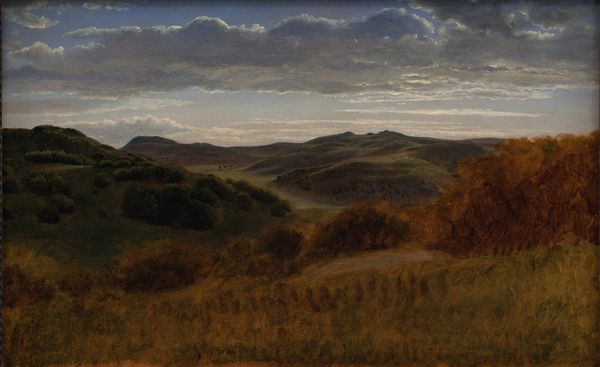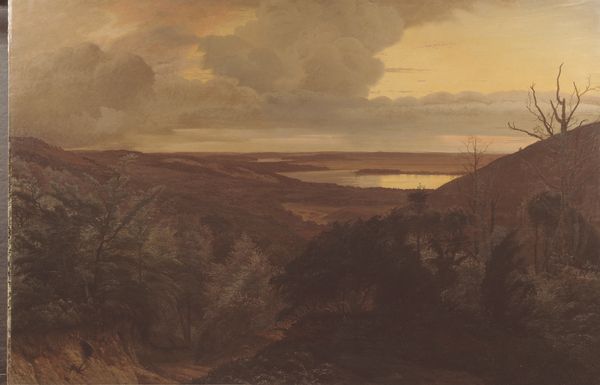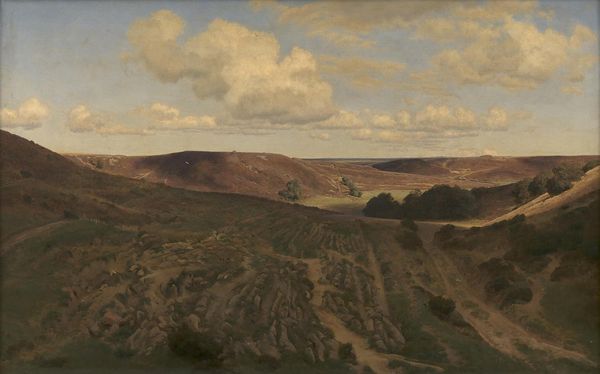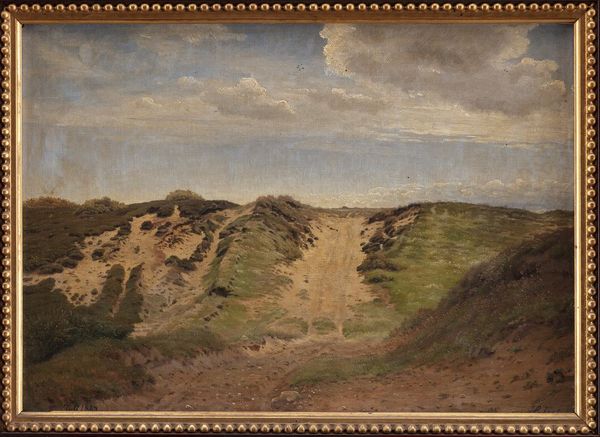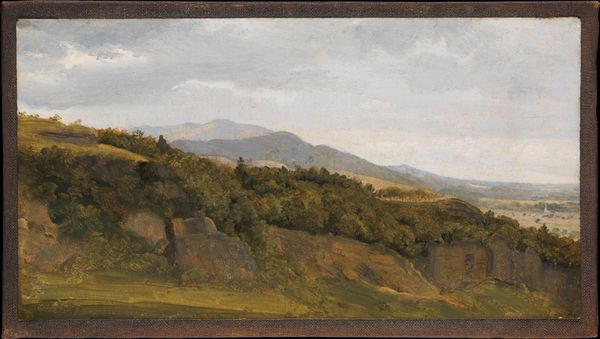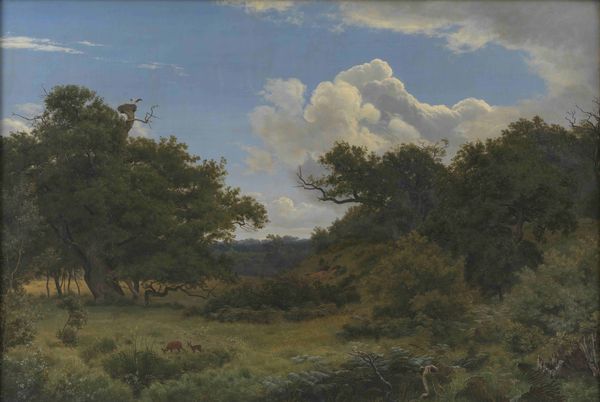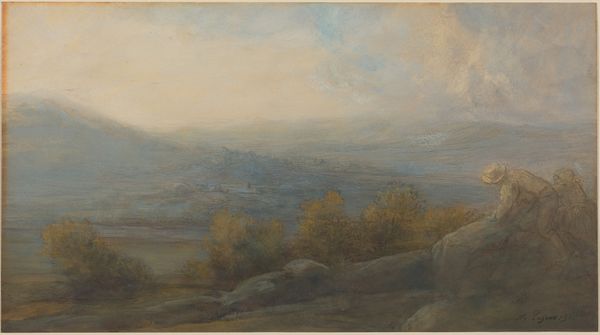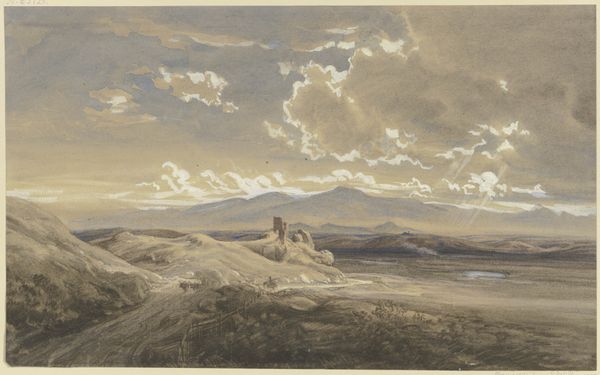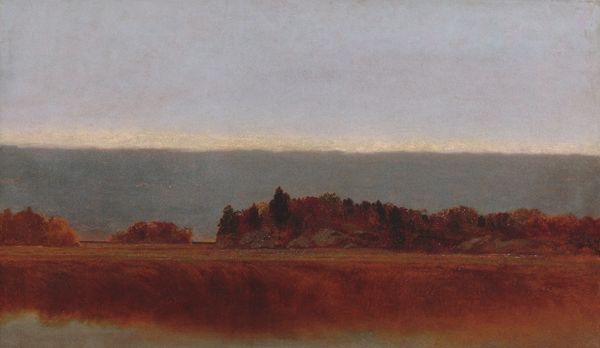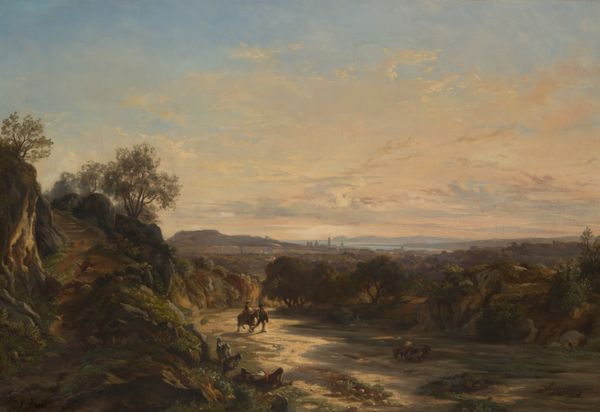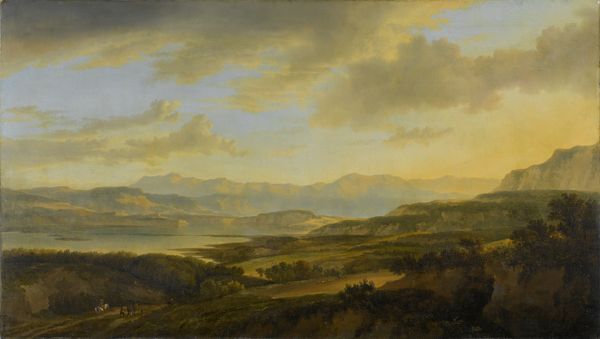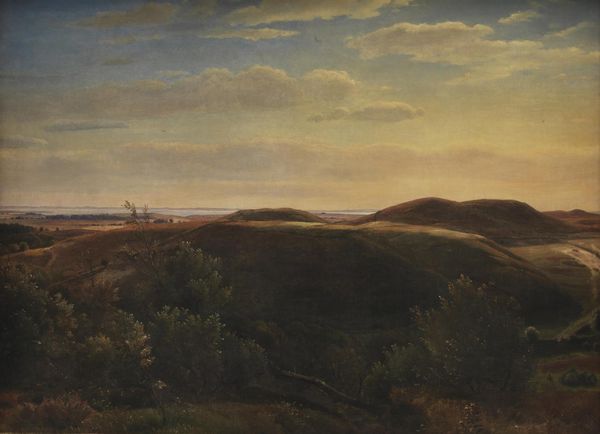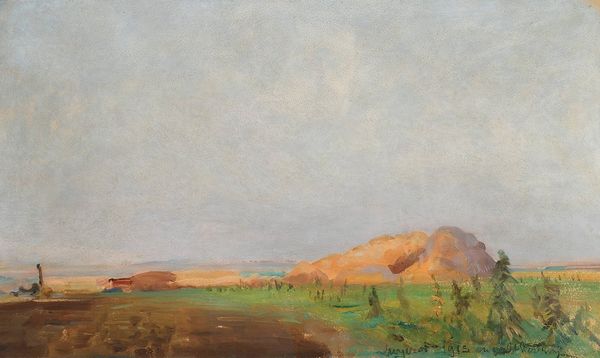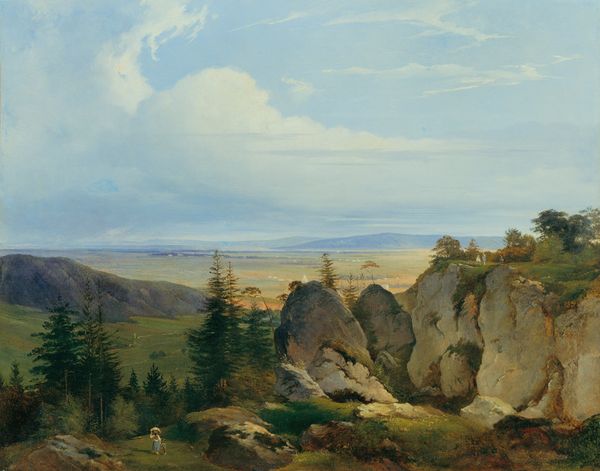
Dimensions: 111 cm (height) x 186.5 cm (width) (Netto)
Editor: So, this is "Heather Hills near Rye, Jutland" by Harald Foss, painted in 1887, using oil on canvas. There’s a stillness in the landscape that almost feels melancholic. The subdued colours, the rolling hills… it gives me a sense of quiet vastness. What's your take on it? Curator: That stillness you feel, it resonates with the socio-political mood of the time. Remember, Denmark in the late 19th century was grappling with the loss of territory after the Second Schleswig War. Landscapes became a way to assert national identity, focusing on the beauty and resilience of the Danish countryside, even in its muted tones. How do you think that context might be influencing Foss's choices here? Editor: That’s a great point. I hadn’t considered the impact of national identity on something as seemingly apolitical as a landscape. So, Foss isn't just painting hills, he is trying to recapture a collective memory of place after this significant historical war. It almost feels like he's reminding the viewer of the unchanging aspects of Denmark. Is this kind of artistic expression unique? Curator: Not at all! This was quite common; similar sentiments are mirrored in music and literature of the era. Looking closer, what strikes you about the absence of people in the landscape? How might that speak to the social climate? Editor: Well, their absence amplifies the feeling of melancholy that I had previously interpreted, but now with the Danish historical landscape in mind, their absence maybe points to an absence of prosperity. I can definitely see the cultural relevance playing out in Foss' work. Thanks! Curator: Precisely. Thinking about the political meaning really shifts how we see these pastoral landscapes. A very worthwhile endeavour.
Comments
No comments
Be the first to comment and join the conversation on the ultimate creative platform.
